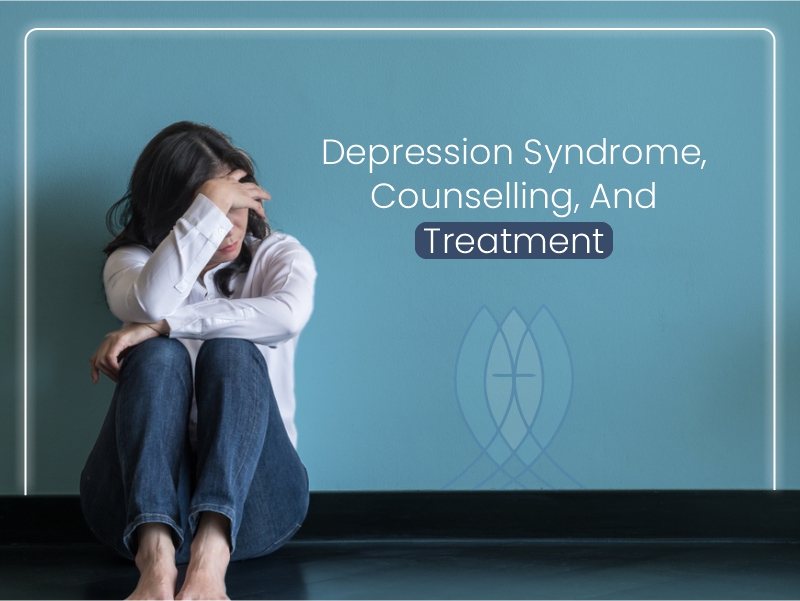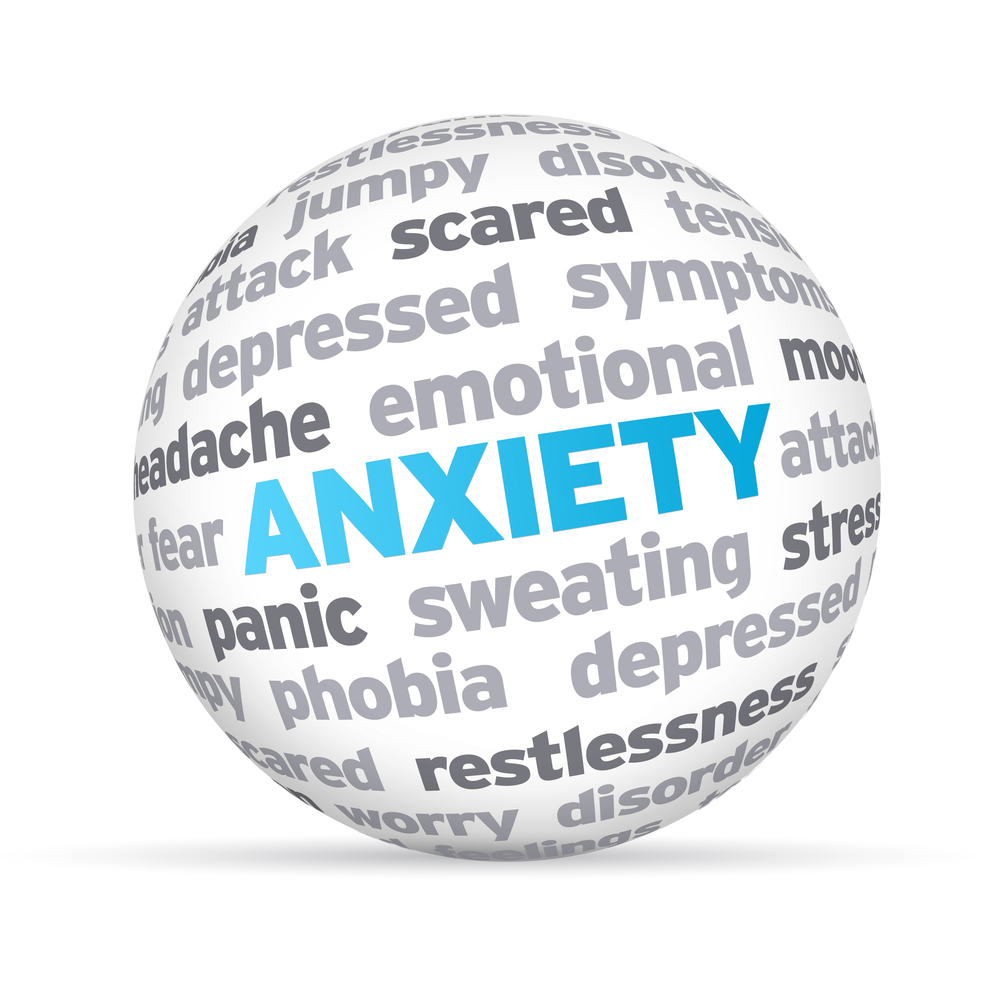Take the first step toward healing with therapy for anxiety solutions
Take the first step toward healing with therapy for anxiety solutions
Blog Article
Checking Out Different Methods in Coaching for Anxiety Condition for Long-term Modification
When tackling stress and anxiety disorders, it's important to check out a range of counseling methods. Each approach supplies distinct understandings and devices to help you manage your signs properly. You might locate that combining strategies can produce the most effective outcomes. Recognizing the subtleties of these methods is essential to cultivating long lasting adjustment. What if the right combination could release a new degree of psychological wellness for you?
Understanding Stress And Anxiety Problems: A Brief Introduction
Anxiety problems, which influence millions of individuals worldwide, can greatly impact life. You could experience overwhelming feelings of anxiety or worry that appear irrepressible. These feelings can cause physical symptoms like a racing heart, sweating, or perhaps lightheadedness. Typical types of stress and anxiety problems include generalized anxiety disorder, panic disorder, and social anxiousness condition. Each has special signs, however they all share a tendency to interrupt your regular and relationships.Understanding the source of your stress and anxiety is crucial. It may originate from genetics, brain chemistry, or life experiences. Recognizing your triggers can help you handle your actions much better. It is very important to keep in mind that you're not alone in this battle. Numerous people deal with similar obstacles, and seeking help is a solid step towards sensation much better. By learning more about stress and anxiety problems, you're currently on the course to understanding and managing your condition better.
Cognitive-Behavioral Treatment: Testing Adverse Idea Patterns
In Cognitive-Behavioral Treatment, you'll begin by determining the adverse thought triggers that add to your anxiousness. You'll function on changing them with even more positive alternatives once you identify these ideas. Together, you'll construct efficient coping approaches to aid manage your anxiousness in day-to-day situations.
Identifying Negative Thought Triggers

Identifying the particular triggers behind your adverse ideas can be essential in managing anxiousness when you come across minutes of distress. Start by taking note of circumstances that provoke sensations of concern or concern. Is it a crowded room, a forthcoming target date, or a discussion with particular individuals? Write these circumstances in a journal. This will aid you determine patterns in your thinking. Notice physical feelings that accompany your adverse ideas, like an auto racing heart or rigidity in your breast. By identifying these triggers, you get insight into what's sustaining your anxiousness. Understanding these links is the primary step in testing those thoughts and ultimately restoring control over your psychological actions.
Changing Thoughts With Positives
Challenging adverse thought patterns is an essential step in changing your mindset and reducing anxiety. You may commonly locate yourself trapped in cycles of insecurity or catastrophic reasoning. Instead of letting these ideas determine your feelings, method replacing them with favorable affirmations or practical choices. As an example, when you believe, "I can not handle this," shift it to, "I can manage difficulties one action at once." This straightforward change can significantly influence your mood. Routinely recognizing and responding to these unfavorable ideas assists produce a healthier interior discussion. Keep in mind, it takes time and initiative, however regularly exercising this method can cause long-term adjustment, empowering you to face anxiety with renewed self-confidence and strength.
Building Coping Approaches Together
Replacing adverse thoughts is only the start of handling anxiousness successfully. To produce lasting change, you require to construct coping methods that empower you. Cognitive-Behavioral Therapy (CBT) aids you determine and test those purposeless thought patterns. Together, you and your therapist can check out exactly how these ideas influence your feelings and behaviors.Start by establishing functional strategies, like journaling or mindfulness workouts, that enable you to face stress and anxiety head-on. When you face your concerns slowly, you'll find out to respond in a different way.

Mindfulness and Acceptance-Based Approaches: Cultivating Present-Moment Recognition
As you navigate the intricacies of anxiety, incorporating mindfulness and acceptance-based techniques can considerably enhance your capacity to grow present-moment awareness. By concentrating on the right here and currently, you'll locate that you can observe your thoughts and feelings without judgment (Counseling services for anxiety). This method aids you recognize your stress and anxiety without feeling overwhelmed by it.Engaging in mindfulness exercises, such as deep breathing, body scans, or assisted meditations, enables you to ground yourself in your current experience. Acceptance-based methods motivate you to accept your feelings as opposed to combat against them. They lose their power over you.Incorporating these methods right into your daily routine can transform just how you react to stress and anxiety when you approve your sensations. You'll develop resilience and learn to browse stressful situations with greater ease. Eventually, cultivating present-moment awareness lays the structure for long-term adjustment, equipping you to lead an extra satisfying life
Exposure Treatment: Facing Fears Slowly
Exposure treatment assists you confront your fears in a steady means, making it less overwhelming. You'll find out methods to deal with anxiety-provoking situations detailed, while also building coping methods to manage your responses. This method empowers you to take control and reduce anxiousness with time.
Steady Exposure Methods

When dealing with anxiousness, gradually confronting your worries can be an effective method to restore control. This method, referred to as progressive direct exposure, includes slowly revealing on your own to the scenarios or items that trigger your anxiety. Begin with much less intimidating circumstances and slowly work your way approximately more difficult ones. As an example, if you're worried of public speaking, you may begin by speaking before a mirror, then progress to sharing thoughts with a friend, and ultimately deal with a small team. Each action aids desensitize you to the fear, developing your confidence gradually. Remember, it's necessary to speed on your own and commemorate tiny triumphes as you relocate via this procedure, enhancing your capacity to take care of anxiousness successfully.
Building Coping Strategies
Building efficient coping approaches is crucial for handling stress and anxiety, particularly as you face your anxieties gradually - Counseling services for anxiety. One effective method is exposure treatment, where you start by encountering your fears in a regulated way. Begin with much less intimidating situations and slowly function your way up to even more challenging situations. This steady exposure helps desensitize you to anxiety causes, making them less overwhelming.Incorporate relaxation techniques, such as deep breathing or mindfulness, to relax your mind throughout exposure. Track your progress, celebrating little victories along the road to boost your self-confidence. Bear in mind, it's okay to take your time; the goal isn't excellence however constant improvement. By developing these techniques, you'll encourage yourself to navigate anxiousness and embrace life more fully
Psychodynamic Therapy: Discovering Root Reasons of Anxiousness
Psychodynamic treatment explores the unconscious mind, exposing the source of your stress and anxiety. By examining your ideas, feelings, and previous experiences, this approach aids you discover underlying disputes and unsolved problems that may add to your existing stress and anxiety. You'll function with a therapist to check out youth experiences, partnerships, and emotional patterns that shape your reactions today.As you get insight into these much deeper layers of your mind, you'll begin to identify how previous events influence your existing habits. This understanding can bring about catharsis, enabling you to refine emotions you could have suppressed.Through the therapeutic connection, you can likewise identify protection mechanisms that may have developed with time, using a clearer course to change. Ultimately, psychodynamic therapy outfits you with the tools to address your anxiousness at its core, promoting long lasting transformation in your emotional wellness.
All Natural and integrative Techniques: Integrating Strategies for Greater Effectiveness
Incorporating numerous healing techniques can boost your trip towards managing stress and anxiety better. By combining aspects from cognitive-behavioral therapy, mindfulness techniques, and all natural strategies, you can develop a tailored technique that addresses your distinct demands. You may make use of cognitive-behavioral methods to challenge unfavorable idea patterns while incorporating mindfulness exercises to ground on your own in the existing moment.Additionally, exploring all natural practices such as yoga or reflection can promote leisure and lower anxiousness signs. This blend allows you to develop higher self-awareness and resilience.Experimenting with these varied approaches can assist you discover what resonates most with you. Bear in mind, it has to do with discovering a synergy that functions, as opposed to adhering to a solitary approach. This integrative technique not just uses instant relief however additionally promotes long-term skills for handling anxiousness, equipping you to reclaim control over your life.
The Role of Support Equipments: Structure Strength With Connection
While it might seem that managing anxiety is a singular trip, having a strong support group can play an essential function in your resilience. Surrounding on your own with understanding close friends, family members, or support system develops a risk-free area where you can honestly share your experiences and feelings. When you link with others, you advise yourself that you're not the only one in this struggle.These relationships use support and can provide useful coping methods that have worked for others. It's additionally an opportunity to acquire point of view; close friends can help you see scenarios in a different way, reducing sensations of isolation.Moreover, psychological support promotes a sense of belonging, which can considerably alleviate stress and anxiety symptoms. By leaning on your support group, you can build resilience and deal with difficulties much more efficiently. Bear in mind, reaching out for assistance is an indicator of stamina, and it can make all the distinction in your trip towards taking care of stress and anxiety.
Frequently Asked Inquiries
What Are the Typical Signs And Symptoms of Anxiousness Problems?
You might experience uneasyness, fatigue, problem concentrating, irritability, muscular tissue tension, and rest disturbances. Physical signs and symptoms can consist of fast heartbeat, sweating, and trembling. Acknowledging these indicators early can assist you seek appropriate assistance and therapy.
For How Long Does Therapy Generally Last for Stress And Anxiety Conditions?
Therapy for anxiety problems typically lasts anywhere from check here a few weeks to several months. It really depends on your private requirements, development, and the strategies your specialist uses to aid you manage your anxiety efficiently.
Can Drug Be Utilized Together With Therapy for Anxiety?
Yes, drug can most definitely be made use of along with therapy for stress and anxiety. Combining both methods commonly improves therapy efficiency, helping you take care of symptoms while exploring underlying problems via therapy (Counseling services for anxiety). Always consult your healthcare provider for tailored recommendations
Are There Self-Help Strategies for Handling Anxiousness?
Yes, there are numerous self-help techniques for managing anxiety. You can practice mindfulness, participate in regular workout, preserve a well balanced diet plan, establish a routine, and use deep breathing strategies to help reduce stress and anxiety signs and symptoms successfully.
How Do I Know if I Required Specialist Assistance for Stress And Anxiety?

Report this page